- News
- Reviews
- Bikes
- Accessories
- Accessories - misc
- Computer mounts
- Bags
- Bar ends
- Bike bags & cases
- Bottle cages
- Bottles
- Cameras
- Car racks
- Child seats
- Computers
- Glasses
- GPS units
- Helmets
- Lights - front
- Lights - rear
- Lights - sets
- Locks
- Mirrors
- Mudguards
- Racks
- Pumps & CO2 inflators
- Puncture kits
- Reflectives
- Smart watches
- Stands and racks
- Trailers
- Clothing
- Components
- Bar tape & grips
- Bottom brackets
- Brake & gear cables
- Brake & STI levers
- Brake pads & spares
- Brakes
- Cassettes & freewheels
- Chains
- Chainsets & chainrings
- Derailleurs - front
- Derailleurs - rear
- Forks
- Gear levers & shifters
- Groupsets
- Handlebars & extensions
- Headsets
- Hubs
- Inner tubes
- Pedals
- Quick releases & skewers
- Saddles
- Seatposts
- Stems
- Wheels
- Tyres
- Health, fitness and nutrition
- Tools and workshop
- Miscellaneous
- Buyers Guides
- Features
- Forum
- Recommends
- Podcast
Stay cycling fit over 60 — all the tips you need to enjoy riding into your 60s and beyond
You might have seen our recent article on how to boost your fitness when aged over 50, but then asked, “what about us cyclists who’ve had a few more birthdays?” One of those people was no other than road.cc founder Tony Farrelly, who at the age of 61 has set himself a goal to improve his fitness in 2024.
To help Tony out and defog the mysterious world of fitness as you age, we’ve drafted in the help of Jason Streather of PDQ Cycle Coaching. Jason works with plenty of aged 60+ athletes, and even coaches cyclists in their 80s who are still racing.
Don't worry though! We realise that not everyone wants to race or even be fast. Tony, for example, is now far less interested in his wattage output and simply cycles because that's what he loves doing, and finds it a good way of keeping fit. In this feature and video (at the top if you prefer to watch), we'll cover changing motivations as you get older, how you might want to modify your training, plus tips and advice on how to avoid injury.
Why is cycling good for over 60s?
Other than the fact that most sports are good for you no matter your age, Streather explained to us that cycling is particularly attractive because of its low-impact nature.
He said: "Bodies and joints can have taken a bit of a beating by your 60s and we've taken a bit of wear and tear.
"Cycling is good because unlike running for example there's no repetitive impact on joints such as hips and knees, which means that you can do it regularly with a lesser chance of injury."
Are there any warning signs an older cyclist should look out for that might suggest it’s time to throw in the towel?
Streather explained that most riders with the motivation will be able to continue riding for enjoyment into their later years, but recommends that anyone in their 40s, 50s, 60s and beyond have a thorough health check every year to make sure any underlying problems are picked up on.
We'd suggest that you listen to your body and pay particular attention to your heart and blood pressure.
Should I give up on trying to be fast now I’m 60+?
"Never! There's a time and place for everything!"
Streather explained that while you don't have to aim to be fast, many of his athletes like to get fit enough so that they can challenge themselves to go fast up a hill. There are plenty of other days when you can just cruise around, though.
"It is important to remember that speed is relative and especially if you're riding on your own you're only measuring yourself against yourself", says Streather.
Whether you've been cycling your entire life or you're a beginner cyclist, you can always set goals, but be realistic about what you can do. It sounds counter-intuitive, but don't push yourself TOO hard. It's much better to be able to do it the day after as well, and the day after that.
Streather says that he always tells his coached riders that "a happy cyclist is a fast cyclist."
What elements of training do over 60s need to pay particular attention to?
- Muscle Mass
Streather explained that there are a few areas which require more attention, but that muscle mass is absolutely key.
"When you're younger, you can get away with a lot of things, but as soon as you get to your 40s and 50s you lose around 3-5% of muscle mass per decade, so we have to seriously work on that.
"When we get into our 60s and 70s you have to work on that even more because it does accelerate as you [get older]. In women, post-menopause, [the loss of muscle mass] can accelerate even faster, so in theory, they have to work on it even more and even earlier sometimes."
> Strength training for cyclists: master muscle control for maximum on-bike gains
This doesn't mean that you have to train like a bodybuilder, but some strength exercises such as squats and push-ups are an ideal way of building strength without even needing to go to the gym.
Streather suggested that for people who did want to frequent the gym, some cable work would be beneficial. You have to find something that fits in around life, and this will differ from person to person.
- VO2 Max
> This is why you’re not a Tour de France racer
"The other thing we begin to lose from our 40s upwards and accelerates in your 50s and 60s is VO2. [VO2] is that little extra kick when you're going up that one-minute climb that you used to be able to punch over."
Pushing yourself on climbs and sprinkling in some high-intensity sessions or efforts into your weekly riding will help to counteract this decline.
- Endurance
Your endurance will depend a lot on what you've done earlier on in your life, and experienced riders will find that they're still capable of going out and doing three, four or five hours. However, Streather suggested that you may need to pay more attention to your fueling: "A bit more energy drink than when you were younger will probably help get you through it a bit easier," he says.
How should my training change from when I was in my 40s and 50s?
Streather once again reiterated that everyone is different and that the types, quantity and intensity of training vary for each of his athletes - however, one thing that does seem consistent between cyclists in their 40s and 50s compared to 60s is that the older riders almost always seem to require more recovery time.
Streather says that he still likes to implement 80/20 plans (80% riding easy/20% intense): "When we're younger, we can definitely do more efforts but the older we get, we need a bit more recovery, however those short efforts, a couple of times a week keep those fast twitch muscles going and that VO2.
"The rest of the time we're doing steady zone one, zone two but then if you're tired [you] have to wait and listen to your body. If you're really tired you just have to rest and recover. So I wouldn't do more than three days training without a rest and then my 80-year-old athlete does one day on, one day off."
Do I need to change my diet or eat differently?
We've already talked a lot about the reduction in muscle mass and slower recovery as we get older, so it's little surprise that Streather recommends getting in a good quantity of protein.
"Getting that protein down you starts repairing the body and you've just got to find the right protein that works for you."
Whether you're omnivore, vegetarian or vegan, there are plenty of different protein sources out there now. Sometimes a protein drink might be easier, but whatever you choose, Streather recommends trying to consume it within the first 20 minutes of getting off the bike.
> Cycling and weight loss — Top tips for pedalling away the pounds
He also noted that the metabolism slows as you age, and you might not be able to eat like a horse anymore! This doesn't mean you can't still have big dinners, but Streather says that he personally likes to bulk out a plate with salad, vegetables and other less calorie-dense foods, which have the added benefit of bolstering the immune system.
What exercises/things should I be doing off the bike?
As we mentioned earlier, weight-bearing exercises will be of a lot of benefit to maintain strength, but older riders need to also work on their flexibility.
Streather explained that many riders of a certain age have simply never considered adding strength and conditioning sessions at any point in their cycling careers, but that it's never too late to start.
Just a 10-minute session per day of simple exercises such as cat and cow movements, planking and stretching can drastically improve your comfort on the bike and prevent injury.
If you want to take this one step further then Streather recommends taking up pilates or yoga, either following sessions on YouTube or going to an actual club and getting the social side of it to.
Proper technique is crucial, and you don't want to end up in a worse position. He suggests looking at yourself in a mirror to try to spot improper technique.
Do I need to think again about my position on the bike?
> The things I learnt from a professional bike fit
Cyclists who have been riding for a long time have probably seen their position evolve over the years. For both Tony and Streather, this has meant shorter stems and more stack to make the position less aggressive.
Streather added that it's important to keep listening to your body, and it's likely that a more relaxed position on the bike is going to be necessary. To help out with this, it may be helpful to get a bike fit once every few years.
How your position changes is extremely dependent on whether you work on your flexibility. If you don't then you simply won't be able to get into certain positions anymore and then you'll be sat upright, hitting all the wind which no one likes!
Do you have any advice for older riders who are nervous about traffic/falling off?
No one likes falling off, but it's no doubt more of a concern as you get older. Streather says that many of his athletes get peace of mind by heading out on the bike with a friend or in a (trustworthy) group or club.
> The benefits of indoor cycling
He also explained that whilst riding indoors is a great way of avoiding traffic and will certainly get you fit, it's not a complete replacement for outside: "When you're riding on the road you're using your whole body and core, it's nice to just be out in nature and our reaction times also slow as we get older so the more we're doing can keep them sharp."
If I change just three things, what should they be?
- Add Strength and Conditioning
Use it or lose it - once you hit your 60s if you don't keep using or at least maintaining the strength and flexibility you have you'll lose it.
- Take extra recovery
Overtraining becomes a far more likely prospect as you get older, listen to your body and when you're feeling under the weather don't try and tough it out!
- Do what you enjoy
If you've got to your 60s and you're still enjoying riding your bike then don't ruin it now! Don't do sessions just to punish yourself and if you're happy on the bike, you will end you probably tend to be quite fast and that's what it's all about.
Final thoughts...
Don't beat yourself up. Again we sort of mentioned it, but no matter how long you've been cycling, instead of comparing your fitness levels to other cyclists compare yourself to other people in their 60s. Whatever you do, you're probably going to be a lot fitter than the vast majority of them.
Finally, whatever type of cyclist you are and whatever level of experience, just try to make cycling a daily part of your life, such as popping into town or off to the shops on your bike. Just doing those things will benefit your fitness.
Try new stuff. Again, whether you've been doing it for decades or are new to cycling, try other types of cycling. Gravel, MTB, track... they'll all increase your enjoyment and make you a better rider too.
Oh, and e-bikes… they're not cheating at any age, but definitely not when you're in your 60s.
Got any tips we've missed? Let us know any of your words of wisdom for Tony in the comments section below...
Jamie has been riding bikes since a tender age but really caught the bug for racing and reviewing whilst studying towards a master's in Mechanical engineering at Swansea University. Having graduated, he decided he really quite liked working with bikes and is now a full-time addition to the road.cc team. When not writing about tech news or working on the Youtube channel, you can still find him racing local crits trying to cling on to his cat 2 licence...and missing every break going...
Latest Comments
- mattw 3 min 22 sec ago
So - to something like a photog's mini reflector. I do enjoy working out the detail of what will be the best solution.
- wtjs 29 min 52 sec ago
I like to think when they got home they did look it up Oh no they didn't!
- srchar 1 hour 11 min ago
Not Campag == not art
- john_smith 1 hour 32 min ago
I think the mass of the car can be treated as infinite, in the sense that the velocity of the car is not going to change much at all on impact....
- mattw 2 hours 21 min ago
Signs installed by Devizes Town Council. AFAIK they are not the Local Highways Authority, and have no authority to install such signs.
- jaymack 2 hours 33 min ago
Tom Allen? Please tell me you don't mean the comedian.
- David9694 5 hours 39 min ago
A flame thrower dog robot is something every cyclist needs.
- roboito 6 hours 9 min ago
Riese and Muller Roadster, quality, comfortable bike. Bosch performance line, belt drive and di2 alfine. I've had one puncture, two hub gear oil...
- chrisonabike 6 hours 15 min ago
Probably there are some counterexamples (Health and Safety haven't taken over the asylum yet). However it should make people take notice, if only ...


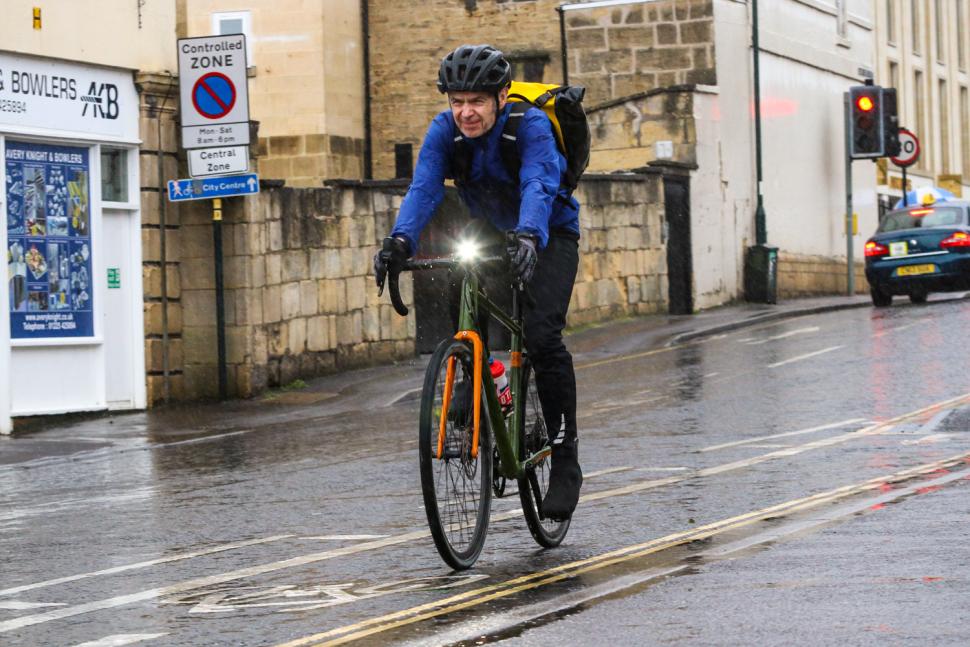
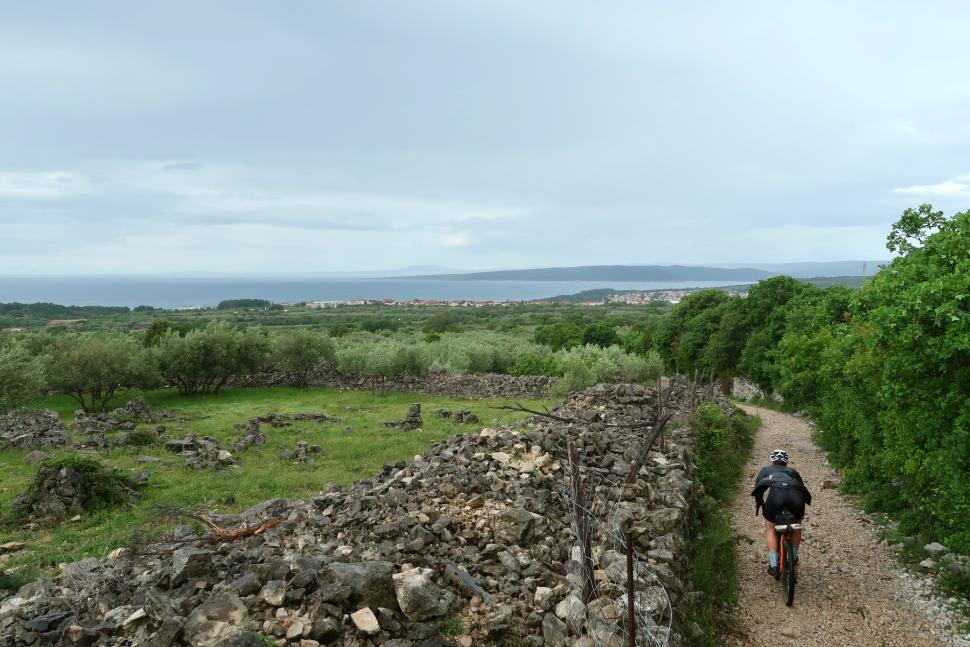
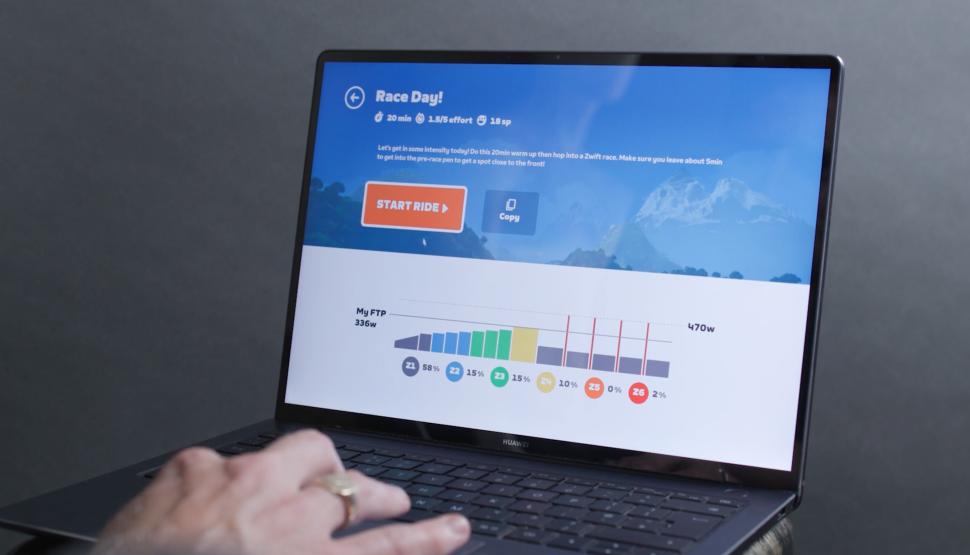
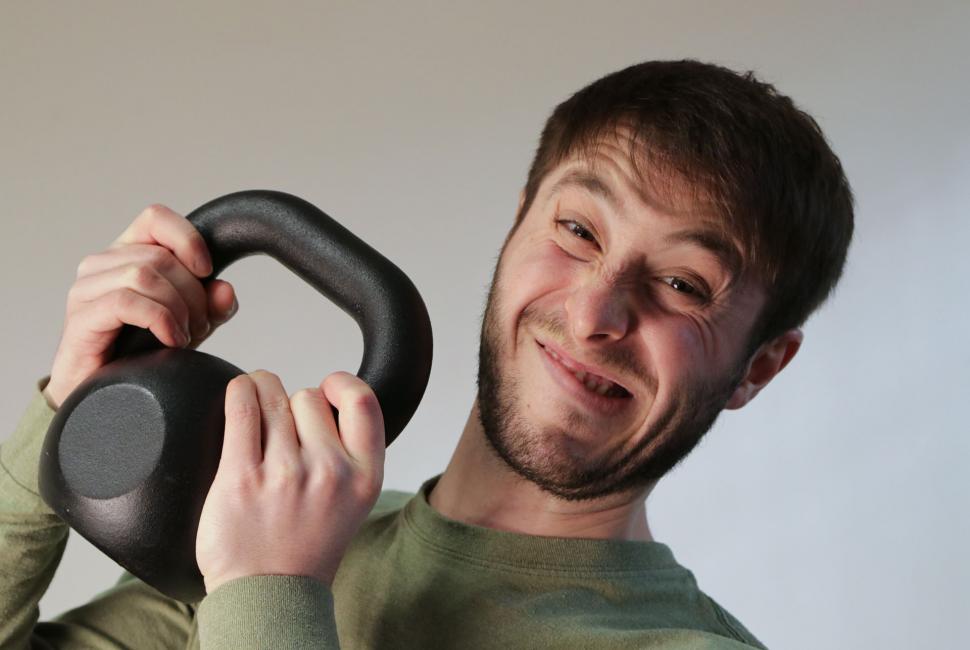
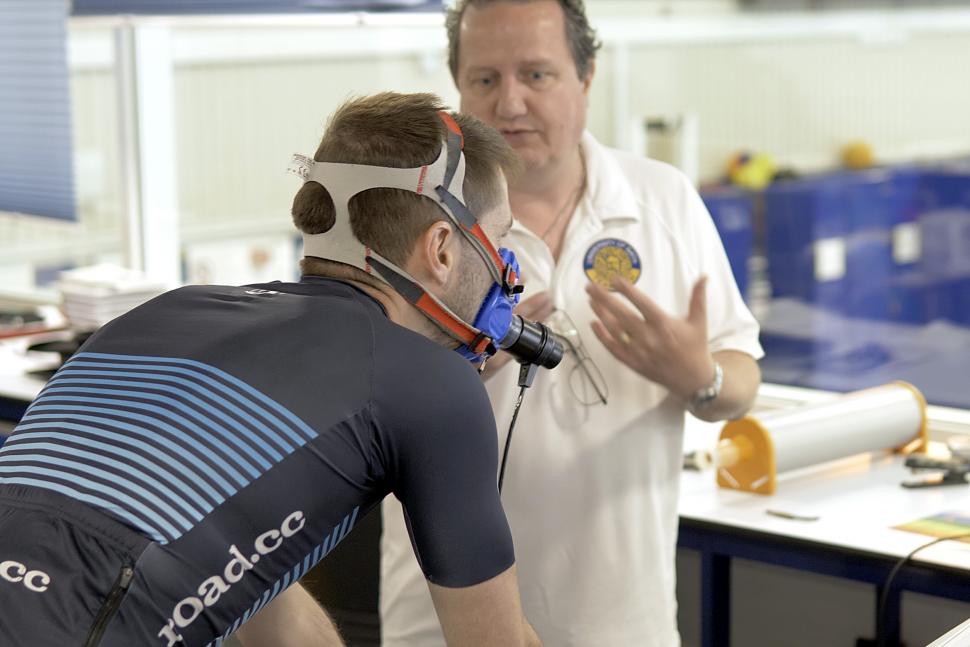
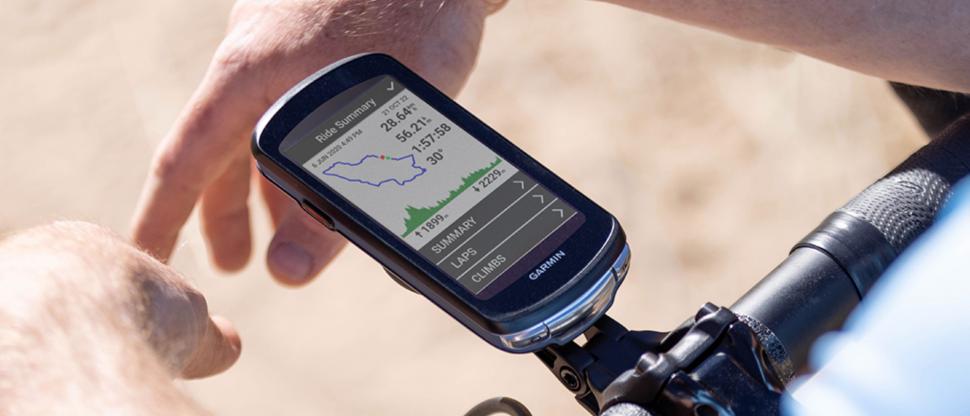

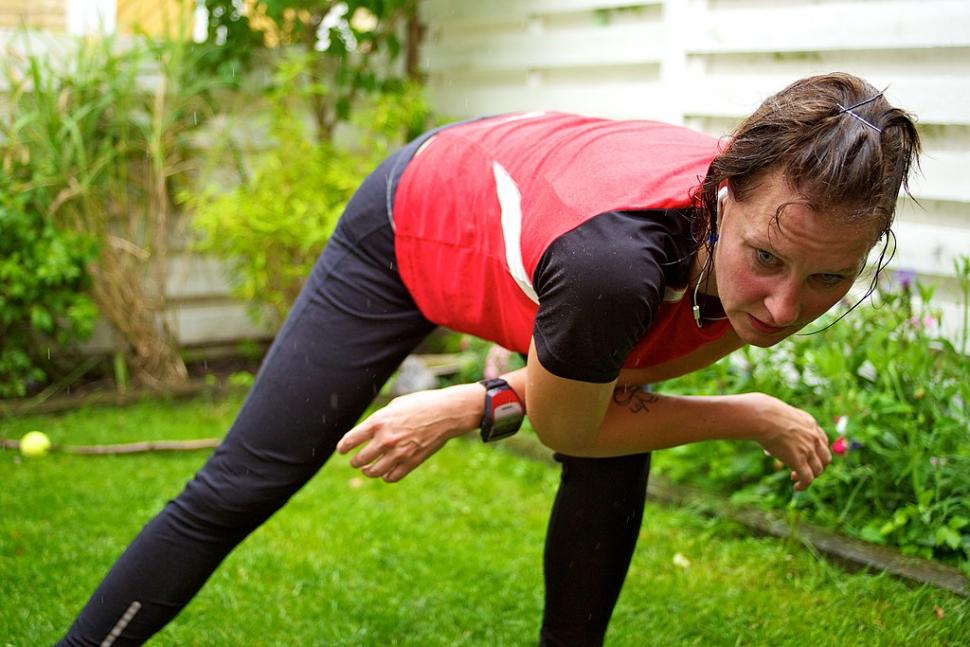



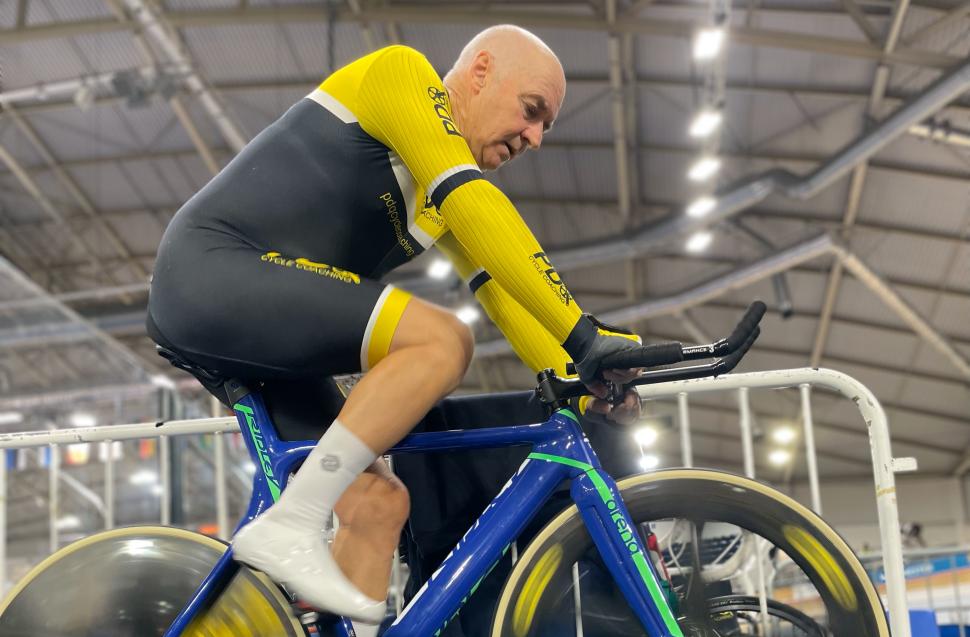
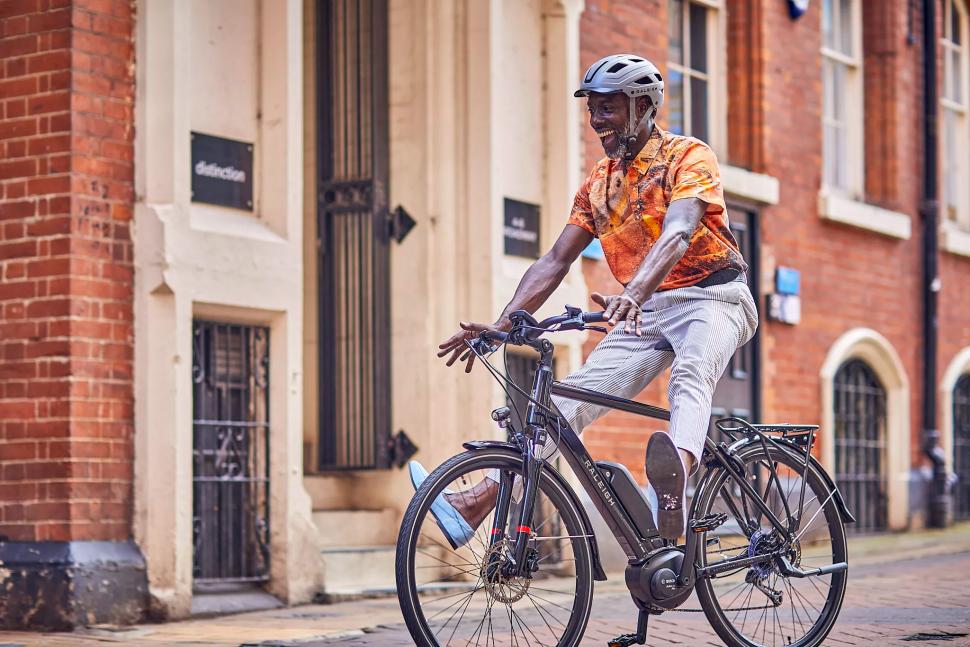
Add new comment
13 comments
I am 67 and I cycle with two groups during the year The Haddenham Easyriders International who ride during the summer on Thursday evenings, and The Haddenham Laz-e-riders International who are the retired group who cycle Wednesday daytime. I have been cycling in the both groups now with an Electric bike, I could not have kept up with the younger group, and now with the electric bike I can sometimes end up pulling them all home. All the retired group have ebikes now. It's brilliant we are still putting in the effort but instead of averaging 9-12 mph we can average 15mph.
We cycle 20-40 miles and drink loads of beer.
I'm over 60 and am still competing in Regional and National BMX events. I was thinking this year would probably be my last doing a full National series and I'll just pick and choose a few from now on. I'll see if I can get into the Worlds next year if the promised 55+ category comes in and I might do the Grands in the US as they have a 61+ age category.
But I do work around old injuries from before. The cruciate injury I got playing football with my sons is an issue for fitness as it limits the load I can put through my right knee. This means I can only do so many hill sprints as part of my fitness training, before it starts to hurt. One of my ankles is a bit mashed up from a motorbike crash decades ago and can be stiff and sore until it's loosened up. The injuries from two broken fingers (one from karate and one from BMX) and a fractured wrist (also BMX) play up a bit from time to time as well.
I know I'm fit for my age. The last time I did the parkrun, I was second in my age category with a respectable time of 21 mins 30 seconds for a route with a couple of hills and I was pleased to note that the two runners immediately after me were 20 years and 30 years younger than me respectively.
Into my 60s, I was among the fittest in our office block: running, swimming, cycling, ball games like inter-office rounders, etc. Whenever conversation came round to things like heart attacks, I'd be told, "Well, you'll be OK". I'd reply that it's primarily genetic, I have a family history of HA or similar in 60s, fitness might help delay the inevitable and help recovery. Age 65, had massive HA, survived due to core fitness which helped keep calm, work with the ambulance crew and surgeon, and fitness helped speed recovery. I now realise it was hugely based on insulin resistance and the high quality bread with peanut butter and honey, quality meusli, potatos, rice was killing me. Reading various books and putting them into practice, eg Dr Mosley, 8-Week Blood Sugar Diet, and the accompanying recipe book got rid of belly fat I hadn't been able to shift and led to faster recovery from intense exercise and less chronic mild pain from inflammation of old injuries
Very good advice here; whilst I don't need to (not yet anyway) follow most of it, at 76 I'm lucky, I don't need to rest after rides, although I occasionally drop gears after a stiff hill to recycle my legs, and ride every day for shopping and recreation.
One thing missed however, I have osteoarthritis + cartilage damage in both knees and have trouble walking very far, curiously I can (and do) cycle for miles and my orthopaedic specialist reckons that will reduce wear and tear on my knees by keeping the knee muscles in trim; I last saw him April 2016 and my knees are still holding up well. Maybe that will encourage others in my position.
As for bike 'fits' and all that jazz, I can make any bike fit me (or is it me fit it?); all my bikes (I've got 4), I've refurbished myself, old, steel, British made jalopies people throw away (which I catch). Its all the fun of the fair for me, but I prefer riding to working on them.
recommends that anyone in their 40s, 50s, 60s and beyond have a thorough health check every year
Or, alternatively, don't as 'health checks' are worthless junk
It's worth having the free NHS Health Check (every 5 years) - height, weight, blood pressure and cholesterol. The 'full body scan' tests offered by private companies are of questionable value.
Reaction times slow down as you get older? Well I'm 75 and have not noticed any decline
It did take you 24 hours to respond to the article though
You won't if you don't test it. It's extremely rare if you are road cycling that you will need fast reactions, it's going to be different if you are a downhill MTB rider. I started to notice a decline in reaction time when I got into my 50s, I was racing canoe slalom at the time and believe that it is this more than any physical decline that was adversely affecting my performance. I've stopped racing canoe slalom now, partly due to moving but also because I was losing my motivation. Fortunately I rediscovered cycling and I've been riding regularly for 9 years now, any age-related losses are still more than compensated for by improvements from training and general riding.
No, you won't notice............until you slip on the ice/miss a step/fail to duck your head/turn your head suddenly!!
Taking seriously... Almost all people I used to meet who cycled as their main sport, up to about 20 years ago, were not good at ball games or other reaction sports. Even the likes of LA whom we don't name was not good at the usual sports but did endurance swimming, running, cycling instead. Such folk are unlikely to notice a decline in reactions. I cycled primarily as transport while doing lots of cricket, rugby, hockey, soccer, a bit of Aussie rules, table tennis, etc. There are plenty of Nintendo type exercise games that are excellent for developing reaction times
According to the National Council on Ageing research, nearly 95% of adults 60 and older have at least one chronic health condition, while nearly 80% have two or more and this is one of the major hurdles that older cyclists have to consider.
If you are lucky enough to be one of those older people who have been blessed with good health as your body naturally wears out, then things are a lot easier.
I am in my 60's myself and have number of chronic health conditions that effect my ability to excercise and most of all I find, to recover afterwards.
Even after a relaxed ride the following day (or a few days!) I can feel totally exhausted sometimes.
However I never intend to give up cycling and I when I eventually fall off my perch I hope I am riding my bike at the time.
If you are over 60 then don't give up, you may not live longer but you will be happier, believe me.
Well said, I'm not quite 60 (55) but face much the same problems and cycling is definitely such a massive help both physically and mentally; because of a bronchial infection swiftly followed by Covid I haven't been able to ride a bike since Christmas Day and the deleterious effect on every aspect of life, from mood to quality of sleep to digestion, is really noticeable. Like you, I fully intend to keep cycling to my final days (be careful about cycling along your perch though, that's just asking for trouble…).